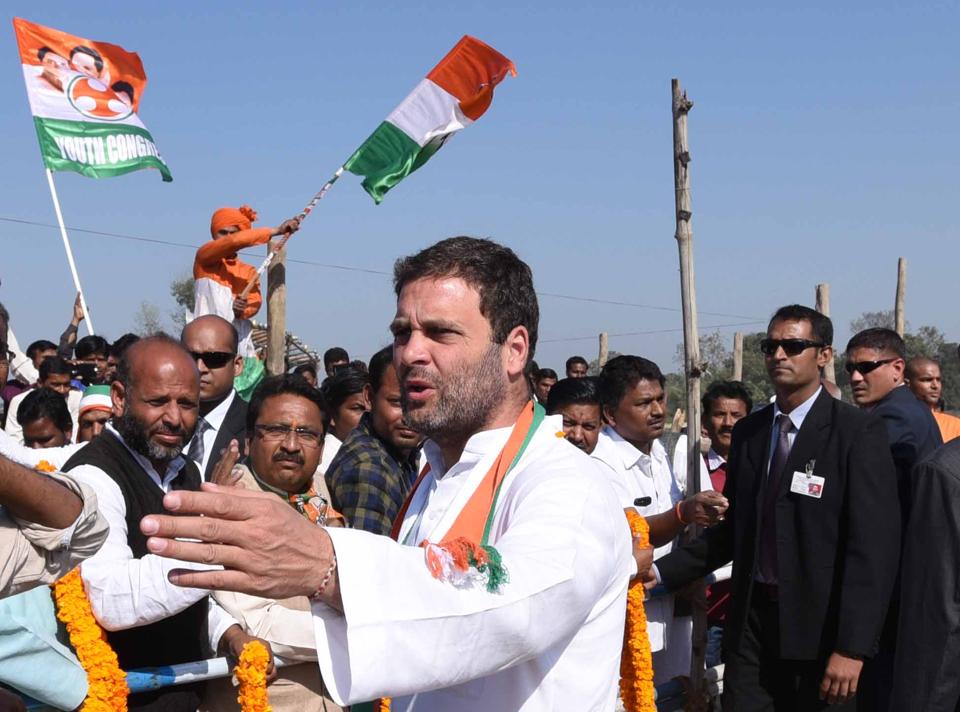Faced with bleak political fortunes and an inability to frame a coherent counter-narrative for BJP’s development plank in Gujarat, Congress has opted for the sinister strategy of creating sectarian rifts in the social fabric of Gujarat. Congress’ posturing to exploit the Patidar agitation for electoral benefits creates dangerous precedents which would have long term divisive effects not only in Gujarat but also throughout the country.
Since the beginning of the Patidar movement for reservation, Congress has overtly and covertly instigated sections of the Patidars community to engage in confrontational politics on the issue. In spite of the clear constitutional difficulties in meeting the Patidar demand for reservation, senior leaders of Congress have made promises which cannot be met without bypassing the Constitution. The disproportionate prominence given to the Patidar reservation issue by Congress has been at the expense of any development agenda. Many voters in the state wonder if Congress is neglecting the interest of 84% of Gujaratis to appease the Patidar community, which constitutes only 16% of the population. Even in the unlikely scenario of Congress coming to power, any attempt to implement the promised Patidar reservations would fester the discontent in other communities, leading to a further deepening of the social fault lines in the state.
Congress has also engaged in similar overtures with some sections of the OBC and Dalit communities. Using some young members of the community as a proxy, Congress has attempted to give a political colour to the issues of these communities. Congress has banked on the ambitions of these young leaders who seem to be more interested in their own political rise than the welfare of their communities. In spite of the outward veneer of the agitations being non-partisan, the frequent meetings between Congress and these young leaders suggest otherwise. It is unclear how Congress plans to reconcile the competing interests of these communities if it comes to power. However, the results of the ill-considered and half-baked promises made during the campaign could be highly disruptive for Gujarat’s society and its economy.
But it is highly likely that the promises are mere tokenism on the part of the Congress in a desperate attempt to seek political resurgence in the assembly elections. But then this is not a new thing for the Congress party. Throughout the country, Congress has time and again resorted to the strategy of manufacturing divisive issues for short-term electoral gains. In a blatant case of appeasement, Congress floated the politically convenient idea of giving reservations to Muslims during the UP assembly elections of 2012 instead of proposing a reasonable plan for empowerment of impoverished Muslims. Similarly, Congress has previously used this mischievous strategy of exploiting social communities for electoral gains during the Gujjar agitation in Rajasthan in 2008 and Jatt agitation in Haryana in 2016 leading to serious law and order problems. Senior Congress leaders from Maharashtra were openly involved in organizing the Maratha reservation movement in Maharashtra. In the run-up to the Karnataka elections, Congress is busy fanning the flames on demands of the Lingayat community. It is also apparent that these issues were often used only for short-term political benefit with no follow-up once the issues had been milked. This seems to have become the go-to strategy for Congress during elections.
Congress’ regressive attempt to build a caste-based vote bank in Gujarat through these efforts has raised serious questions about its ability to govern in a responsible way.
While a small number of Patidars and other communities have chosen to lean towards Congress, it is likely that they will be disappointed after the election. If history is to be believed, Congress will no longer be interested in their issues after the polls. However, elections in the past few years have shown that the development agenda is the most important factor for the voters. The probability of Gujarati voters falling prey to Congress’ divisive agenda at the cost of development is very low and so are the chances of Congress getting any political returns in a state which pioneered the ‘governance vote’.
Author:
Sanjay Trivedi (Journalist and Columnist with Gujarat Samachar, Mid Day and Sandesh)
